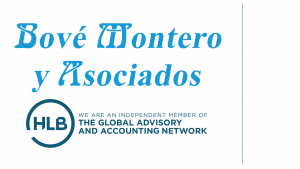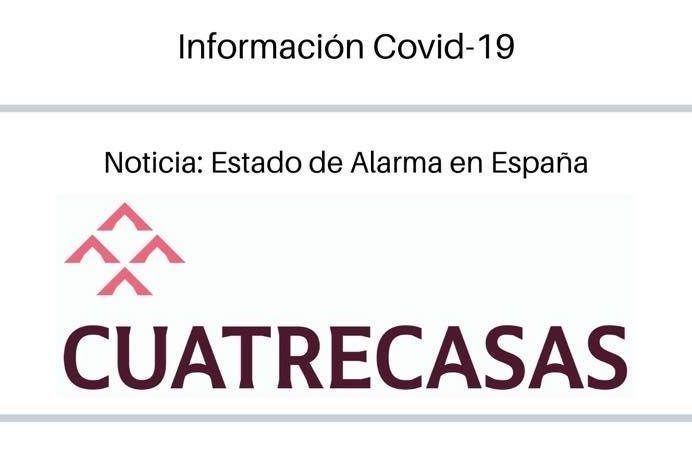La siguiente publicación trata de explicar las normativa básicas referente a impuestos para emprendedores y start-ups en España. El articulo está escrito en inglés, por Bové Montero y Asociados, para más información rogaríamos que se pongan en contacto con ellos: Bové Montero y Asociados, www.bovemontero.com

Taxation of Entrepreneurs and Startups in Spain
– The Big Picture –
Below is a general overview of the main tax implications of starting a business in Spain. Entrepreneurs that are tax resident in Spain and wish to start a business in Spain, may choose to carry out their business activity directly (as a “freelance”) or through a company (usually a limited liability company, such as a Sociedad de Responsabilidad Limitada or “SL”). In both situations, the taxes to consider are the following.
1. VALUE ADDED TAX (VAT)
VAT norms and its filing obligations are the same for a SL or a freelance.
VAT is a consumption tax that is supposedly to be borne by the final consumer/individual. So, broadly speaking, VAT is not a cost for businesses since it is a tax that businesses pass on to their clients (be it other businesses or the final consumers) and the final consumer, usually an individual not carrying out a business, bears the final cost of having to pay the VAT.
In particular, and as a rule of thumb, a business (freelance or SL) will be able to deduct the VAT paid when purchasing goods and services (i.e. Input VAT), as long as:
- (i) its activity is not exempt of VAT and
- (ii) the goods and services purchased are used for the business activity and not for personal or private matters.
Note that most business activities are not exempt of VAT (i.e. they do charge VAT on their invoices) and can therefore deduct the Input VAT. Examples of business activities that are exempt of VAT (and therefore do not charge VAT on their invoices) are: financial, medical and educational services or residential rentals.
VAT gets more complex when operating internationally (outside of Spain). When introducing cross-border situations, be it because of providers or clients, it is important to distinguish between two different businesses: services vs goods.
- (i). With services one must pay special attention to the location rules that determine where the service is located for VAT purposes and thus where the VAT is to be charged and collected. For example, B2B services are generally located where the customer is located. On the other hand, B2C services are located where the business rendering the service is located.
- (ii). Good are subject to location rules as well, but have other issues to consider such as where and how are goods delivered to, such as exports, imports, EU delivery of goods and EU acquisition of goods, chain transactions, triangular operations,consignment stock. FYI under certain circumstances, some of these transactions can benefit of certain exemptions.
Businesses selling goods on-line (e.g. marketplace, e-commerce, etc.) to end-consumers (B2C) must also be aware of special thresholds within the EU countries, since exceeding these thresholds can generate compliance and filing obligations in other EU countries.
Under both business models (goods and services), when a business has a significant presence in another country, the business could be “established” in that country (i.e. could have a “permanent establishment”) and this could trigger multiple filing obligations. To make things more complex for VAT newbies, when dealing with cross-border situations and permanent establishments, the reverse charge mechanism must be kept in mind. The general VAT rate in Spain is 21%. There are lower rates (10% and 4%) for certain goods and services.
Compliance obligations
VAT is a very formal tax, meaning that simple formal mistakes can generate serious problems for cash-strapped businesses. So, although VAT should not in principle be a cost for businesses as explained above (remember that VAT is passed through to the next member of the value chain until the final consumer), special attention should be drawn to avoid higher costs. VAT forms in Spain must be filed on a quarterly basis, during the following 20 days after each quarter. However, if the turnover of the previous year is above 6M EUR, the business must comply with the real time reporting obligations filing ( SII, in Spanish) and must file the VAT forms on a monthly basis. During the month of January (of the following business year), taxpayers must also file a form that is an annual summary.
Businesses must issue their invoices according to the Spanish norms and must register the issued
and registered invoices in a specific VAT book/ledger.
2. CORPORATE INCOME TAX (CIT)
If an individual decides to incorporate a company (SL, for example) to carry out its activity, the following rules should be considered.
The SL will be taxed on the profit (i.e. difference between income and expenses) at a general 25% tax rate. However, newly incorporated businesses can benefit of a 15% tax rate during the first two years with a profit, under certain situations.
In principle, all the expenses related with the business activity are deductible. However, the CIT Law does envisage a number of particularities for specific expenses (depreciations, impairments, gifts, etc.).
Losses generated during a business year can be carry forward and used to off -set future profits. The CIT Law foresees a favorable regime for Spanish entities that hold a significant participation in other entities or subsidiaries. Thus, dividends and capital gains derived from such participations can benefit from an exemption and remain untaxed (i.e. Participation Exemption Regime).
Individuals that decide to carry out their business activity through a company must be aware of transfer pricing rules, specially if the company renders services that are fully or partially performed by the individual, such as business or IT consultancy, architecture, etc. It is important to know that the services rendered by the shareholder/owner of the company must be passed on to the company as a cost. In other words, the shareholder/owner must receive a salary/income from his company and this income must be set according to an arm’s length principle (i.e. market price). Although this might sound as a positive outcome because this expense is deductible for the entity, the shareholder will have to pay taxes in his Personal Income Tax for this salary/income. The CIT Law considers that the salary is considered at arm’s length if it equals to 75% of the company’s profit, without considering the shareholder’s salary. Therefore, 75% of the profit of a company carrying out professional services should in principle be passed on to the shareholder, who in principle provides the underlying services, as a salary. This is a rule to avoid that individuals use companies to solely benefit of the lower tax rates. Note that there are special tax advantages (basically tax deferrals) in the CIT for companies with a turnover under 10M EUR.
Compliance obligations
Companies must draft financial statements on a yearly basis. CIT is filed during the 25 days after 6 months from the Company’s year-end. So, if a Company’s financial year finishes on December 31st, 2019, the CIT form shall be filed, during the 25 days of July 2020. Companies must also file three CIT instalments during the year.
3. PERSONAL INCOME TAX (PIT)
If an individual decides to carry out the activity as a freelance, the following rules shall be considered. Income under the PIT is classified into two baskets:
- (i). General Tax Base: business income, salary and rental income
- (ii). Savings Tax Base: dividends, interests and capital gains
The General Tax Base is subject to a progressive tax rate that, in Catalonia, starts at 21,50% and tops at approx. 48%. After 60k EUR income is taxed at 40% approx. The Savings Tax Base is subject to a much lower progressive tax rate that starts at 19% and tops at 23% for income exceeding 50k EUR. Business income is also taxed on the profit and follow very similar rules as the CIT. Certain additional expenses can be deducted on a lump sum basis. Please note that the PIT Law foresees an Exit Tax for individuals that
- (i) have been tax resident in Spain during 10 of the last 15 years and
- (ii) hold a significant amount of shares.
Compliance obligations
Individuals must file PIT instalments on a quarterly basis (20% on the accumulated profit) and the final/annual PIT form must be filed during the month of April and June of the following years.
4. WITHHOLDING TAXES
Be it because the freelance or the SL have employees, or because they work with other freelance individuals, businesses (freelance or SL) are obliged to withhold the Income Tax on what they pay to employees and freelancers and must file the Withholding Tax forms on a quarterly basis. However, if the turnover of the previous year is above 6M EUR, the business must file these forms on a monthly basis. During the month of January (of the following business year), taxpayers must also file a form that is an annual summary. Withholding tax obligations can arise on other types of payments as well (commercial rental, etc.).

Andreu Bové, Departamento Jurídico-Tributario
Bové Montero y Asociados
Marià Cubí 7, 08006 Barcelona .




